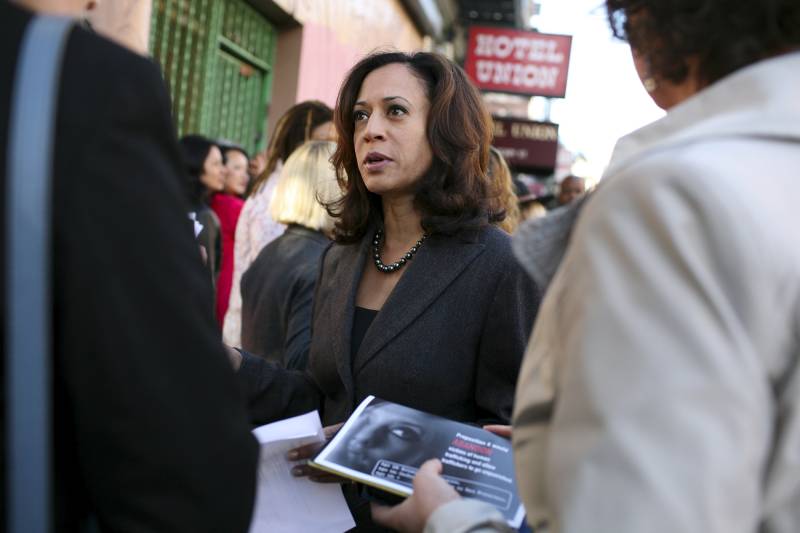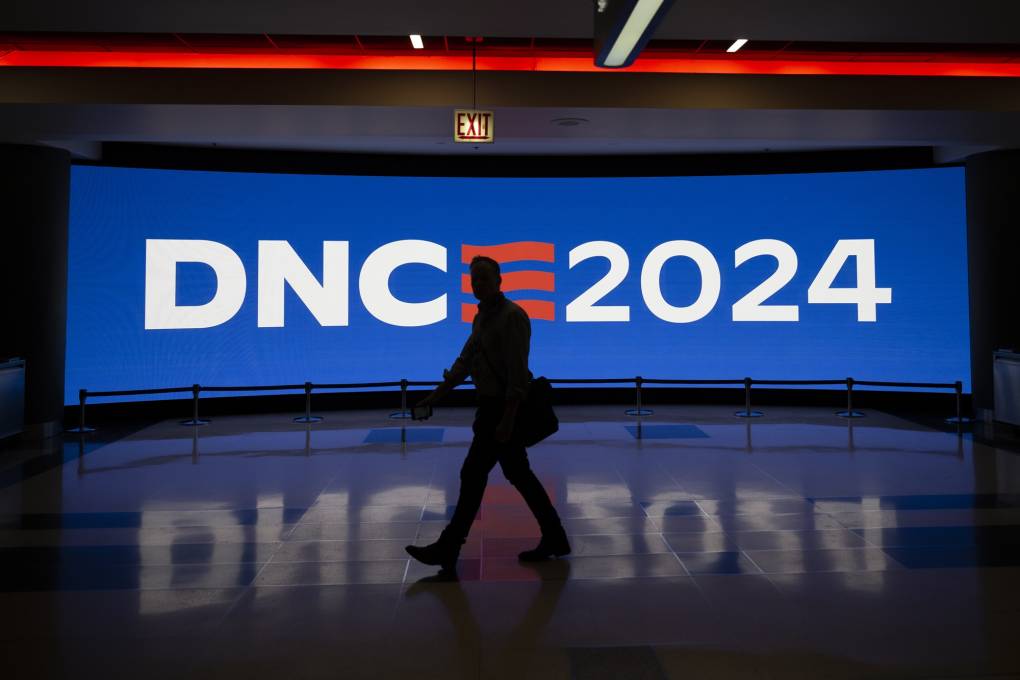CHICAGO — Years before Kamala Harris rose to the top of the Democratic Party, she was an unheralded prosecutor who mounted a challenge against her former boss, the sitting district attorney of San Francisco, Terence Hallinan.
The brain trust behind Harris’ 2003 victory is still riding with her. As Harris prepares to accept the Democratic nomination for president, a group of her longtime confidants spoke with KQED’s Political Breakdown at a Chicago hotel near the convention to reflect on the campaign that started it all.
This interview has been edited for length and clarity.
Meeting Kamala Harris
Debbie Mesloh, campaign volunteer and later Harris’ communications director: I met Kamala in 2000. I met her the night of the reelection for Sen. Feinstein, who I was working for at the time, and she was a guest to a very small dinner by Louise Renne, our first female city attorney. Kamala was working for her at the time, and we had an amazing conversation, and I realized she was going to do big things. And I made up my mind to be a part of that if I could be.
Heidi Sieck, campaign volunteer: I met Kamala in 2003. There were like eight people at this house party. It was on the back patio, it was raining, it was kind of dingy. And we were just kind of standing there, and all of a sudden, this young woman comes in. She gets this, like milk carton or crate, and she steps up on it and gives this speech about transformation of criminal justice reform that I had never heard before because it was such a new, fresh perspective. And I was like, who is this woman? And I was all in.


